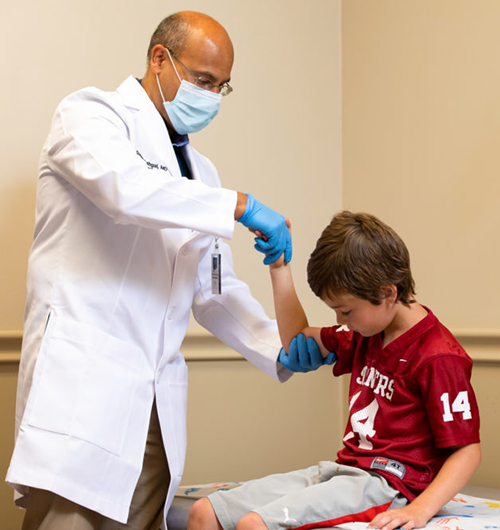Pediatrics Genetic Testing is a specialized diagnostic tool used to identify genetic disorders and inherited conditions in children. It analyzes a child’s DNA to detect mutations, chromosomal abnormalities, or genetic variations that may cause developmental delays, congenital anomalies, metabolic disorders, or other health issues. Early detection through genetic testing can guide personalized treatment plans, improve disease management, and provide valuable information for family planning. This testing helps pediatricians understand the root cause of unexplained symptoms, supports early intervention, and enhances long-term health outcomes for affected children. It is increasingly essential in modern pediatric healthcare.
Choosing Pediatrics Genetic Testing offers invaluable benefits by providing precise insights into a child’s genetic makeup, enabling early and accurate diagnosis of hereditary or developmental conditions. This testing helps tailor treatments and interventions specific to the child’s needs, improving health outcomes and quality of life. It also assists families in understanding potential risks, guiding informed decisions about care and future pregnancies. By identifying underlying genetic causes, pediatricians can avoid unnecessary tests and treatments, speeding up the path to effective management. Overall, it empowers healthcare providers and families with crucial knowledge to support the child’s health and development comprehensively.





Pediatrics Genetic Testing is recommended for children who exhibit unexplained medical symptoms, developmental delays, or congenital anomalies that suggest a genetic cause. Families with a history of genetic disorders or inherited conditions should also consider testing to better understand potential risks. Additionally, pediatricians may suggest testing for children with recurrent health issues or neurological symptoms that are difficult to diagnose. Early genetic insights can help tailor treatments and guide family planning decisions, making it a valuable tool for both affected children and their families.
You should consider this test if:


A pediatrician or genetic specialist reviews the child’s medical history, symptoms, and family background to assess the need for testing.
A certified genetic counselor discusses the purpose, types, risks, benefits, and possible outcomes of the test with the family.
A small sample of the child’s blood, saliva, or buccal (cheek) cells is collected in a non-invasive or minimally invasive manner.
The sample is sent to a specialized genetics lab where DNA is extracted and analyzed for mutations, chromosomal abnormalities, or specific gene defects.
A team of geneticists and clinicians reviews the test findings and determines if any genetic conditions are present.
The results are shared with the family, and if a condition is identified, a care plan including treatment, therapies, and further monitoring is outlined.

 01
01
Our fully integrated E-Lab platform offers online test ordering, real-time tracking, and secure digital reporting bringing convenience and control to both physicians and patients across the country.
 02
02
From routine blood tests to complex genetic panels, we leverage cutting-edge platforms like NGS, PCR, and AI-powered analytics for maximum accuracy and clinical relevance.
 03
03
With lab facilities based in Florida, we ensure faster processing times and direct access to our expert team. You get timely results backed by responsive, local customer support.
At E-lab, we are dedicated to innovation, collaboration, and seamless growth.
